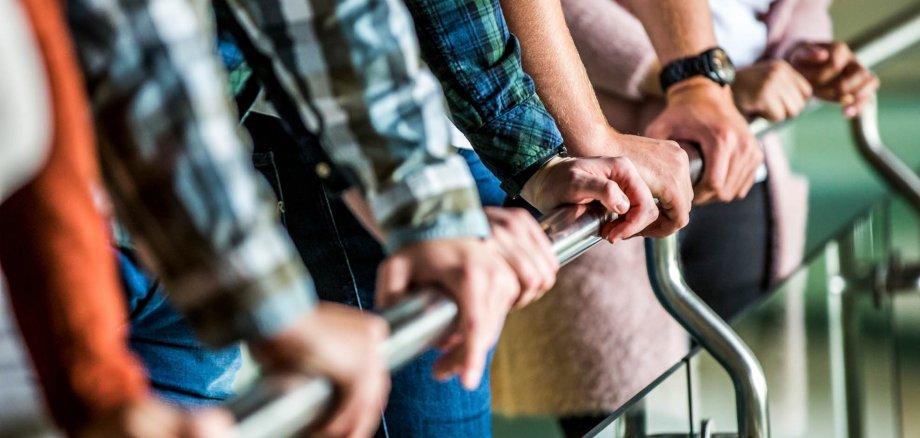MoJa and JUMP: Leaving no young person behind
Providing concrete help and opening young people in difficult life situations to further support services that they were previously unaware of or rejected - this is the objective of the mobile youth work (MoJa) in Waldeck-Frankenberg. It is funded by the Waldeck-Frankenberg Job Centre and the Hessian Ministry of Social Affairs. "The young people should have a goal in mind again," explains Julia Rusch, press officer of the job centre.
The pandemic with its contact restrictions now unfortunately has negative effects on the work with young people, MoJa youth workers Aljoscha Götte and Leyla Nickel report. Their black VW bus, which they normally use to travel around the entire district to offer young people talks in a protected space, is now only allowed to be used very rarely. "Young people need a perspective right now, socially and professionally," Götte and Nickel emphasise. However, it is becoming more and more difficult to reach the young people because their familiar meeting places such as parks or multi-storey car parks are disappearing. Young people especially miss informal encounters.
In the meantime, digital meetings could no longer serve as a substitute; the two youth workers have noticed a great screen fatigue among the young people. "We are now trying to make contact with other young people in need of help through young people who are already participating in the MoJa project," and parents are also contacting them directly, Götte and Nickel say. The problems are manifold, ranging from drug use to unemployment to being thrown out of home, combined with homelessness.
When the most serious problems have been solved and the young people are open to further support, they can continue to be looked after by the staff in the project "Youth with Perspectives" (JUMP). JUMP is financed by the European Social Fund and by the district of Waldeck-Frankenberg within the framework of youth vocational assistance.
"We don't want to leave any young person behind. The earlier we intervene, the earlier help will be provided," District Administrator Dr Reinhard Kubat is convinced. Since both MoJa and JUMP are based at the district-owned DELTA Waldeck-Frankenberg GmbH, a transition from one project to the other is possible without any problems. Angelika Goldkamp, project coordinator of JUMP, about the project: "We advise and help young people at the transition to work."
As an important component of the district-wide youth employment agency, JUMP is very well networked with schools and companies. "Many young people are thrown off track when they miss their school-leaving exams and cannot find a training place, and they retreat into a shell," says Goldkamp. The JUMP project team with six regionally responsible counsellors offers young people information about opportunities to catch up on their school-leaving qualifications or to gain further vocational qualifications. Support is also offered for personal obstacles. The counselling takes place in schools and in the counselling rooms in the four medium-sized centres of the district.
The two MoJa youth workers Aljoscha Götte and Leyla Nickel as well as JUMP coordinator Angelika Goldkamp call on all young people in need of help to contact them. Together they want to offer solutions, open up a perspective and turn a difficult life situation into one that can be overcome.
Contact:
MoJa:
Leyla Nickel
Tel. 0152 33728947
E-mail l.nickel@delta-wa-fkb.de
Aljoscha Götte
Tel. 0152 32066821
E-mail a.goette@delta-wa-fkb.de
JUMP:
Angelika Goldkamp
Tel. 05631 50169815
E-mail: a.goldkamp@delta-wa-fkb.de
